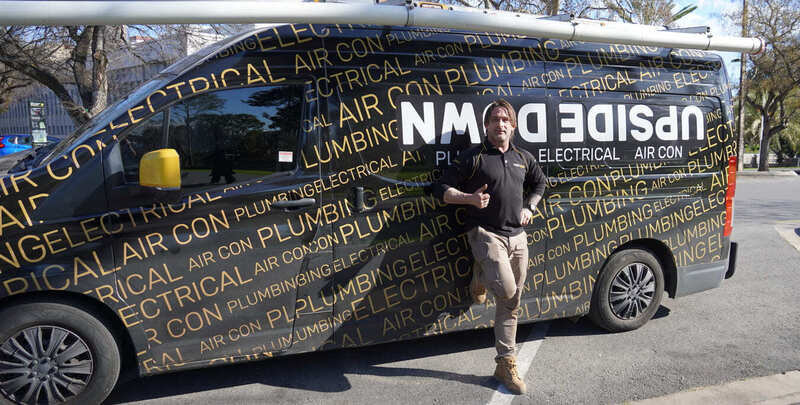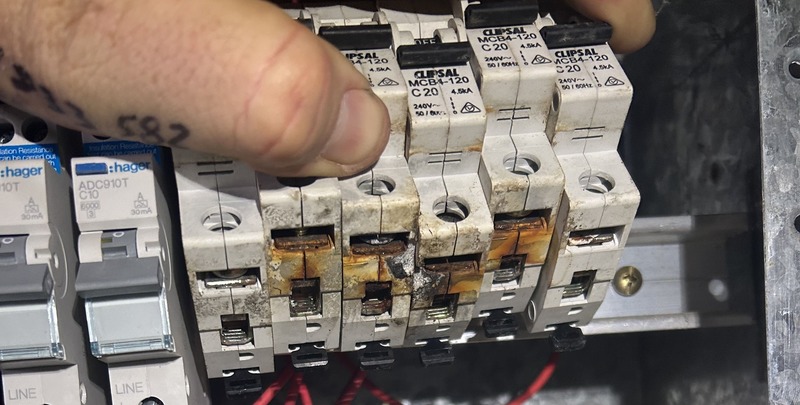6 Most Common Home Electrical Repairs

Electrical issues can be a real headache for homeowners, but with a little know-how, many of them can be tackled safely and effectively.
Whether you’re dealing with flickering lights, faulty switches, or mysterious power surges, we’ve got you covered.
In this blog, we’ll walk you through these common electrical problems step by step, offering practical advice and tips to help you troubleshoot and fix them like a pro.
From diagnosing the problem to knowing when it’s time to call in a professional, we’ll empower you with the knowledge you need to keep your home’s electrical system running smoothly and safely.
Now, let’s dive into the six most common home electrical repairs.
1. Electrical Faults with Appliances
Appliances such as washing machines, dishwashers, microwaves and coffee machines are workhorses in our homes, but they can also be sources of electrical woes.
Here are some common problems to watch for:
- Tripped circuit breakers: When you plug in an appliance and the circuit breaker trips, it could indicate an overload or a faulty appliance.
- Frequent surges: If your appliances regularly cause power surges or fluctuations, it might be a sign of electrical issues within the appliance itself.
- Sparks or strange sounds: Unusual noises or sparks coming from appliances could indicate wiring problems or internal faults.
- Intermittent operation: Appliances that work sporadically or suddenly stop working altogether might have loose connections or internal damage.
- Burnt or melted components: Visible damage like burnt wires or melted components signals a serious electrical fault that requires immediate attention.
If you notice any of these issues with your appliances, it’s best to unplug them and have them inspected by a qualified technician to prevent electrical hazards and ensure your safety.
2. Mystery Power Outages
Unexpected power outages, especially with clear skies, are commonly caused by a tripped safety switch or circuit breaker.
A qualified electrician tackles these electrical repairs by identifying the tripped safety switch and resetting the circuit breaker. Handle any electrical work involving the home’s power supply with extreme caution.
3. Flickering Lights
Ever walked into a room only to be greeted by lights that seem to be doing a disco dance? Flickering lights might not just be annoying; they could be a sign of an underlying electrical issue. So, what’s causing this light show?
One common culprit is a loose or faulty light bulb. Before you start worrying about electrical demons, try tightening or replacing the bulb. If that doesn’t do the trick, the problem might lie deeper within your electrical system.
Poor electrical connections can also cause lights to flicker. Loose wiring or a faulty switch could be to blame. It’s crucial to address these issues promptly to prevent more significant problems down the line.
In some cases, flickering lights could indicate overloaded circuits or voltage fluctuations. Consulting with a qualified electrician can help pinpoint and resolve these issues safely and effectively. Remember, when it comes to flickering lights, it’s better to address the problem sooner rather than later.

4. Fuse Box and Circuit Breaker Issues
Ah, the fuse box or circuit breaker panel – the heart of your home’s electrical system. But what happens when things go awry? Let’s shed some light on these common issues.
Tripped circuit breakers are a frequent annoyance. They’re designed to protect your home from electrical overload by shutting off power to the circuit. Often, a simple reset does the trick. However, frequent tripping could indicate a more significant problem, such as overloaded circuits or faulty wiring.
Older homes might still have fuse boxes, which can pose their own set of challenges. Blown fuses need replacing, but it’s crucial to use the correct amperage. Using the wrong size fuse can lead to electrical hazards.
In either case, if you’re not comfortable troubleshooting electrical problems yourself, it’s best to call in a professional. They can ensure your electrical system is safe and functioning properly, giving you peace of mind in your home.
5. Problems with Switches and Outlets
Switches and outlets are the unsung heroes of our electrical systems, until they start acting up, that is. Let’s dive into some of the most common issues you might encounter and how to tackle them.
Ever flipped a switch only to have nothing happen? It could be a faulty switch, a loose connection, or even a deeper wiring problem. Sometimes, a simple replacement does the trick. Other times, you might need to tighten connections or call in a pro for a closer look.
Outlets that don’t work can be equally frustrating. Before assuming the worst, check if the outlet is controlled by a switch or if the circuit breaker has tripped. If not, it might be a faulty outlet or wiring issue.
Remember, safety first. If you’re unsure or uncomfortable working with electricity, it’s best to call in a professional electrician to ensure everything is fixed properly and safely.
6. Faulty Wiring
Faulty wiring is like a silent threat lurking behind your walls. It’s one of the most serious and potentially dangerous electrical issues you can encounter in your home. So, what signs should you look out for?
Frequent tripped circuit breakers, sparking outlets, or flickering lights can all indicate wiring problems. Sometimes, these issues are caused by outdated or damaged wiring that can’t handle the demands of modern electrical usage.
DIY fixes might seem tempting, but when it comes to faulty wiring, it’s crucial to leave it to the pros. A licensed electrician can safely inspect your wiring, identify any hazards, and make the necessary repairs to ensure your home’s electrical system is up to code and, most importantly, safe for you and your family.
Remember, it’s better to address wiring issues promptly to prevent potential fires or electrical hazards in your home. Safety always comes first.
The Importance of Consulting a Professional
Whenever you need to take on the challenge of electrical repairs and maintenance, there’s no substitute for engaging the services of a professional electrician.
While you may be tempted to engage in do-it-yourself solutions, consulting a professional is the best course of action for the following reasons:
- Experience and expertise: Qualified electricians undergo years of training and on-the-job experience to amass broad knowledge and a comprehensive understanding of electrical systems. Their expertise guarantees safe, reliable, and long-lasting solutions for your home appliance repairs and electrical work.
- Time saving: Consulting a professional electrician saves you time. Instead of engaging in trial-and-error attempts, an electrician’s expertise allows them to identify and rectify problems more efficiently. This swift and timely response prevents further damage and ensures your home’s operations return to normalcy in no time.
- Safety first: Tinkering with electrical systems can be extremely dangerous without the necessary knowledge and skills. A professional electrician not only holds the required qualifications but is also well-informed about safety practices and protocols. Consulting an expert protects you, your family, and your home from potential risks associated with improper electrical handling.
- Warranty protection: Using professional services ensures you don’t inadvertently void the warranty on your appliances, saving you future repair costs. Expert repair technicians are familiar with numerous brands and models, respecting warranty terms and ensuring the appliance is restored to optimal functioning.
To Brighter and Safer Homes
Given the importance of electrical safety and maintaining the performance of your appliances, always prioritise consulting a professional electrician.
Your investment in expert maintenance and repair services ultimately results in safer homes, better-performing appliances, and overall satisfaction with your household’s electrical systems.
Please note: This information is provided for advice purposes only. Regulations differ from state to state, so please consult your local authorities or an industry professional before proceeding with any work. See our Terms & Conditions here.